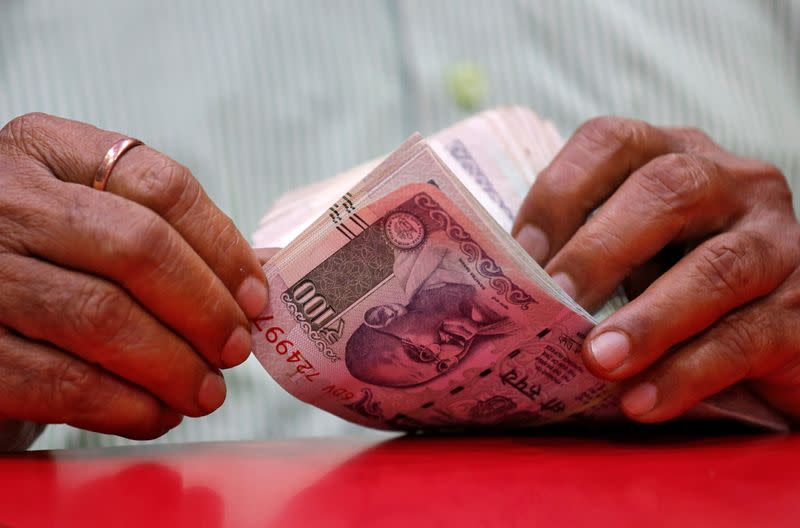Asian bonds provide refuge for investors fleeing Treasuries turmoil

By Stanley White
TOKYO (Reuters) - Global investors fleeing a shakeout in U.S. and other developed market bonds are finding harbour in the higher yields and relative stability offered by Asian junk-rated debt.
The rise in long-term yields in major economies to multi-year highs is reminiscent of the 2013 taper tantrum, except that India, Indonesia and others in Asia aren't seeing the selloff in bonds and currencies they did back then.
Now, with the backing of stronger economies, less profligate governments and healthier current accounts, the region is becoming a refuge for yield seekers.
Foreign investors have bought a net $41.5 billion of Chinese bonds since the start of the year, already about a third of what they did in all of 2020. Inflows into other emerging Asia bond markets this year are $2.8 billion, or 61% of last year's total.
"Emerging markets Asia is attractive from a relative value perspective," said JC Sambor, head of emerging markets fixed income at BNP Paribas Asset Management in London.
"We think there is more value in high yield. We think it is fundamentally mispriced," he said, referring to the cheapness of bonds in markets such as China.
The spreads Asian junk bonds offer have been a big attraction for investors seeking returns that are better than inflation.
Bank of America's high-yield Asian emerging markets index shows spreads are 671 basis points above Treasuries, versus a spread of 330 basis points for high-yield U.S. credit, effectively an additional payout of more than 300 basis points.
For investors who are more risk averse, government debt from China, Indonesia, and India offer spreads from 170 to 500 basis points over Treasuries, so the carry pick up is "significant," says Joevin Teo, head of Asian fixed income at Amundi Singapore.
(Graphic: High Yield Versus Investment Grade: https://fingfx.thomsonreuters.com/gfx/mkt/xlbpgdkkyvq/Pasted%20image%201615182578519.png)
VISITING OR STAYING?
Some asset managers expect these inflows to continue over the longer term as shell-shocked investors recover from their losses on Treasuries and euro-denominated debt and see the case for Asian bonds.
Global emerging market credit totals around $1.4 trillion, and Asia makes up the lion's share of this market, but investors are missing out because they rely on benchmarks that understate Asia's size, says Paul Lukaszewski, head of corporate debt for Asia-Pacific at Aberdeen Standard Investments in Singapore.
Sambor at BNP Paribas said he prefers Chinese hard currency corporate debt, which is denominated in dollars, for the added layer of protection. Other investors wary of currency risk also say they prefer dollar-denominated bonds.
"Given the levels of yields in places like Germany, it doesn't make sense to hold them in any decent size if the aim is to protect against volatility. For this, we have a positive view on bonds from Korea and China," said Justin Onuekwusi, portfolio manager at Legal & General Investment Management in London.
Yet, while China offers the biggest pool by far of high-yield credit in Asia, there are risks around corporate defaults as the government switches from its pandemic-era stimulus to more targeted lending.
Aberdeen's Lukaszewski is also positive on Chinese dollar credit but is cautious about the power generation and industrial sectors, which he reckons could be adversely affected by plans to cut carbon emissions.
Mitul Kotecha, chief emerging market Asia and Europe strategist at TD Securities in Singapore, expects Asian bond markets will face periods of net outflows as some investors book profits on an increasingly crowded trade. But the long-term fundamentals look solid, he said.
(Reporting by Stanley White in Tokyo, additional reporting by Gaurav Dogra in Bengaluru and Sujata Rao-Coverley in London; Editing by Vidya Ranganathan and Sam Holmes)

 Yahoo Finance
Yahoo Finance 